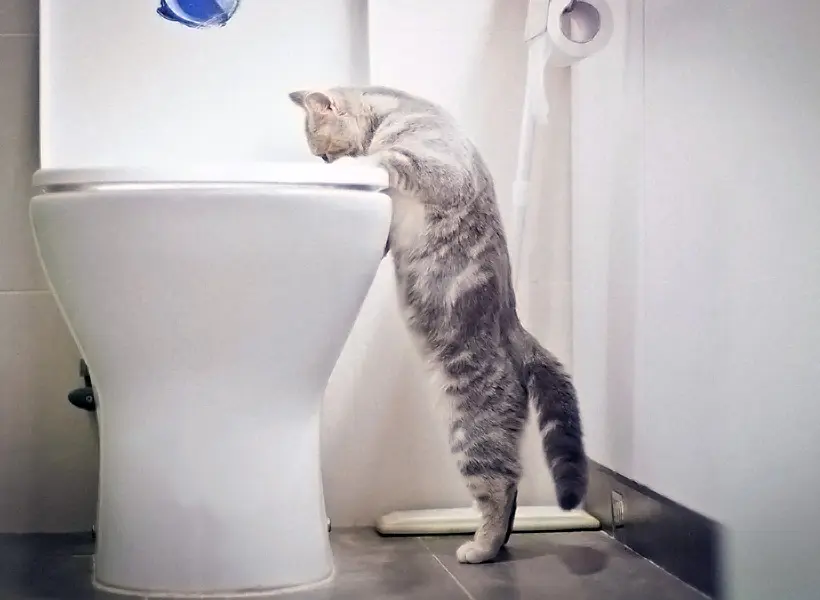The Risks of Disposing Cat Poop in Your Toilet - Precautionary Measures
The Risks of Disposing Cat Poop in Your Toilet - Precautionary Measures
Blog Article
We have discovered this great article about How to Dispose of Cat Poop and Litter Without Plastic Bags down the page on the internet and reckoned it made good sense to relate it with you here.

Introduction
As pet cat proprietors, it's vital to bear in mind exactly how we throw away our feline pals' waste. While it may appear convenient to flush cat poop down the toilet, this technique can have detrimental effects for both the atmosphere and human health.
Ecological Impact
Purging feline poop presents dangerous virus and parasites into the supply of water, posturing a substantial risk to marine ecosystems. These pollutants can adversely affect aquatic life and concession water top quality.
Health Risks
Along with environmental worries, purging cat waste can likewise present health dangers to people. Feline feces might consist of Toxoplasma gondii, a parasite that can cause toxoplasmosis-- a potentially severe health problem, especially for expecting females and people with weakened immune systems.
Alternatives to Flushing
The good news is, there are safer and much more liable means to deal with cat poop. Consider the complying with alternatives:
1. Scoop and Dispose in Trash
The most usual technique of taking care of feline poop is to scoop it right into an eco-friendly bag and throw it in the garbage. Be sure to utilize a committed litter scoop and throw away the waste promptly.
2. Use Biodegradable Litter
Go with biodegradable cat litter made from products such as corn or wheat. These litters are eco-friendly and can be safely gotten rid of in the garbage.
3. Bury in the Yard
If you have a lawn, take into consideration hiding feline waste in an assigned area away from vegetable gardens and water resources. Make sure to dig deep sufficient to prevent contamination of groundwater.
4. Mount a Pet Waste Disposal System
Purchase a pet waste disposal system especially created for cat waste. These systems make use of enzymes to break down the waste, lowering smell and ecological impact.
Conclusion
Liable animal ownership extends beyond providing food and sanctuary-- it likewise involves proper waste administration. By refraining from purging feline poop down the toilet and going with different disposal approaches, we can lessen our ecological footprint and safeguard human health.
Why You Should Never Flush Cat Poop Down the Toilet
A rose by any other name might smell as sweet, but not all poop is created equal. Toilets, and our sewage systems, are designed for human excrement, not animal waste. It might seem like it couldn’t hurt to toss cat feces into the loo, but it’s not a good idea to flush cat poop in the toilet.
First and foremost, assuming your cat uses a litter box, any waste is going to have litter on it. And even the smallest amount of litter can wreak havoc on plumbing.
Over time, small amounts build up, filling up your septic system. Most litter sold today is clumping; it is made from a type of clay that hardens when it gets wet. Ever tried to scrape old clumps from the bottom of a litter box? You know just how cement-hard it can get!
Now imagine just a small clump of that stuck in your pipes. A simple de-clogger like Drano isn’t going to cut it. And that means it’s going to cost you big time to fix it.
Parasitic Contamination
Believe it or not, your healthy kitty may be harboring a nasty parasite. Only cats excrete Toxoplasma in their feces. Yet it rarely causes serious health issues in the cats that are infected. Most people will be fine too if infected. Only pregnant women and people with compromised immune systems are at risk. (If you’ve ever heard how women who are expecting are excused from litter cleaning duty, Toxoplasma is why.)
But other animals may have a problem if infected with the parasite. And human water treatment systems aren’t designed to handle it. As a result, the systems don’t remove the parasite before discharging wastewater into local waterways. Fish, shellfish, and other marine life — otters in particular — are susceptible to toxoplasma. If exposed, most will end up with brain damage and many will die.
Depending on the species of fish, they may end up on someone’s fish hook and, ultimately on someone’s dinner plate. If that someone has a chronic illness, they’re at risk.
Skip the Toilet Training
We know there are folks out there who like to toilet train their cats. And we give them props, it takes a lot of work. But thanks to the toxoplasma, it’s not a good idea.

I have been very enthusiastic about Can You Flush Cat Poo or Litter Down the Toilet? and I am hoping you enjoyed the new blog posting. If you liked our blog post if you please remember to pass it around. I praise you for your time. Visit us again soon.
Automated Marketing Report this page